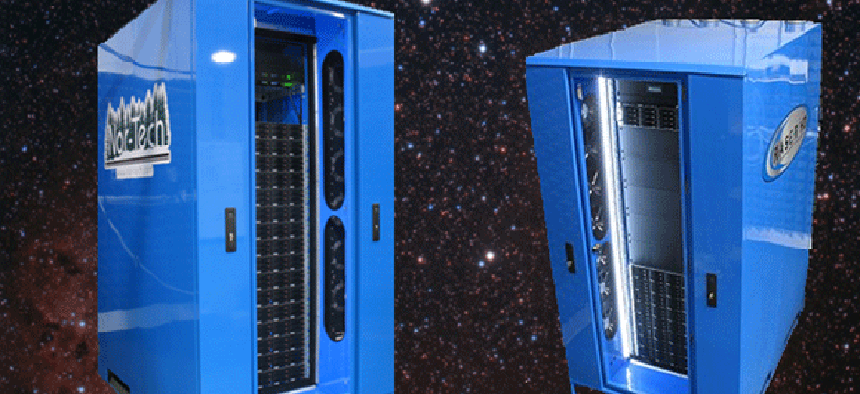FAA's supercomputer will be first 'tourist' in space


Connecting state and local government leaders
Before the joyrides begin, the agency will send a high-performance modular data center into space to test radiation levels 100 kilometers above the Earth.
I really didn't think we were that close to space tourism, but apparently tickets will go on sale soon, at least after all the pesky little safety issues are dealt with. Then there's the fact that there's not really anywhere to go off-planet right now, as NASA has yet to break ground on its Lunar data center.
Going much beyond the moon in a hurry is out of the question too, as it would require something like a warp drive, which is still in the theoretical phase. (Scientists at the University of Washington say they’ve built the parts for a fusion rocket that could get to Mars in 30 days, though they have yet to test it.)
So space tourism in the near future will be limited to orbiting the Earth. It will be kind of like buying a tour on one of those antique trains that are fun to ride, but only go for a scenic ride through the countryside on a circuitous route. The fun is in the adventure of the journey I suppose.
But that doesn’t mean there aren’t risks, one of which could be radiation.
Because space travel would start on Earth in a private spaceship, the Federal Aviation Administration has jurisdiction over setting up safety protocols to keep travelers safe.
The medical research arm of FAA recently purchased a high-performance micro-modular data center from Elliptical Mobile Solutions and Nor-Tech. EMS actually has quite a few impressive data center accomplishments listed on its website, putting computers in odd places where they are really needed, though this seems to be the first one designed to be able to head into space, or near space, as the case may be.
FAA's new micro-modular data center can support up to 80 kilowatts of power per 42U cabinet. Gear inside the data center will be cooled using liquid, which allows the box to be completely sealed without an overheating risk.
The data center will be used to help measure the amount of radiation a traveler can expect to absorb during a trip 100 kilometers up, away from Earth's protective barriers. Down here on the ground, we do get some radiation naturally from space, but the ozone layer helps keep us from frying to a radiated crisp. Travelers in space would require adequate shielding and other precautions to keep themselves safe, and FAA will be using the data center to figure out how much protection is needed. The agency is working with space tourism company Virgin Galactic on conducting the test.
Personally, I wont be buying a ticket anytime soon, at least until the whole radiation thing is worked out. Oh, and the million-dollar price tag for a ticket might also be a bit of a turn-off. But one day we might all be able to make it into space, and we’ll feel a lot safer because FAA’s data center went there first.




